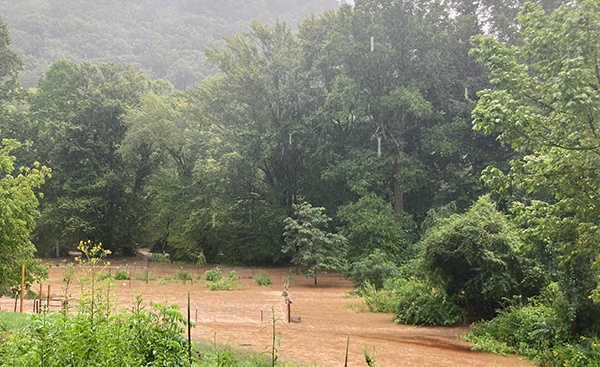Flood Relief for Area Farmers
go.ncsu.edu/readext?816711
en Español / em Português
El inglés es el idioma de control de esta página. En la medida en que haya algún conflicto entre la traducción al inglés y la traducción, el inglés prevalece.
Al hacer clic en el enlace de traducción se activa un servicio de traducción gratuito para convertir la página al español. Al igual que con cualquier traducción por Internet, la conversión no es sensible al contexto y puede que no traduzca el texto en su significado original. NC State Extension no garantiza la exactitud del texto traducido. Por favor, tenga en cuenta que algunas aplicaciones y/o servicios pueden no funcionar como se espera cuando se traducen.
Português
Inglês é o idioma de controle desta página. Na medida que haja algum conflito entre o texto original em Inglês e a tradução, o Inglês prevalece.
Ao clicar no link de tradução, um serviço gratuito de tradução será ativado para converter a página para o Português. Como em qualquer tradução pela internet, a conversão não é sensivel ao contexto e pode não ocorrer a tradução para o significado orginal. O serviço de Extensão da Carolina do Norte (NC State Extension) não garante a exatidão do texto traduzido. Por favor, observe que algumas funções ou serviços podem não funcionar como esperado após a tradução.
English
English is the controlling language of this page. To the extent there is any conflict between the English text and the translation, English controls.
Clicking on the translation link activates a free translation service to convert the page to Spanish. As with any Internet translation, the conversion is not context-sensitive and may not translate the text to its original meaning. NC State Extension does not guarantee the accuracy of the translated text. Please note that some applications and/or services may not function as expected when translated.
Collapse ▲
Flash flood waters from Tropical Storm Fred.
Farmer Relief Grant Funds
With our farming communities reeling from the disastrous flooding from Tropical Storm Fred, there is also a surge in support for those most severely impacted. Appalachian Sustainable Agriculture Project (ASAP) created the Appalachian Grown Farmer Relief Fund in 2020 to deal with the economic hardships farmers experienced due to the pandemic. That fund will now also be able to cover natural disasters and help fund a new round of Farmer Immediate Needs Grants.
This grant is intended to support farms with significant losses due to natural disasters. Farmers may apply for up to $500 to cover immediate needs and expenses towards cleaning, replanting, repairing, or other costs not covered through insurance or other available programs that will allow the farm to quickly respond or recover. Qualifying farms must be Appalachian Grown certified. Nonprofits are not eligible at this time.
Priority will be given to farmers who 1) face a significant loss due to flooding or other natural disasters; 2) depend on the farm business for more than 50 percent of their household income; 3) have limited resources or identify as BIPOC; and 4) will use funds to cover costs not eligible through insurance or other available programs.




